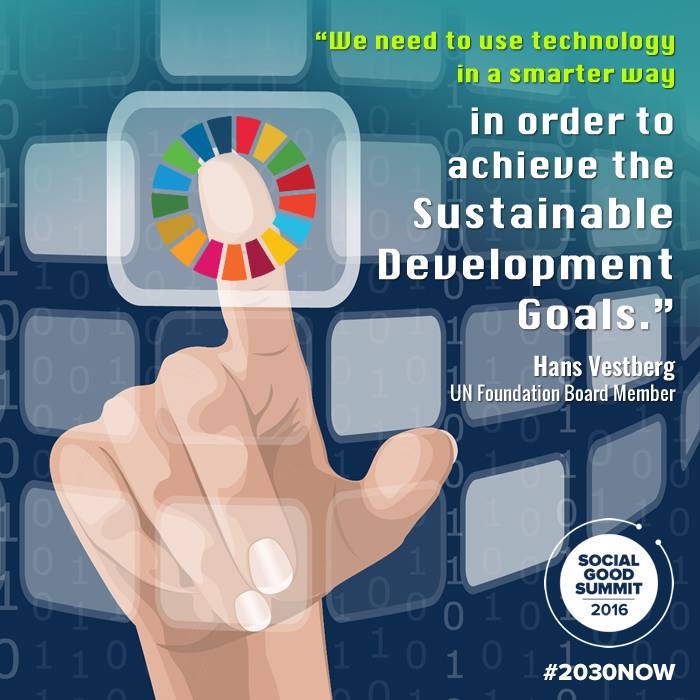Social Good in the Digital Age
The internet has been a powerful force in shaping modern society. It has fostered the sharing of information and given everyone a platform to speak about things that matter most. But, as pointed out by Teddy Goff in his talk at the summit, the internet is often better at showing people things to be outraged at than giving them the tools to do something about it.
One aim of the Social Good Summit is to build upon the good qualities of the internet and technology to advance social causes. The 2016 Summit brought together speakers from the public, private, and NGO sectors to discuss ways to best address worldwide social problems. The summit embraced a media-friendly, shareable approach, posting speakers’ Twitter handles, and providing social media graphics with key quotes.
At face value, Social Good may have looked all glitz and glam with slick display screens, vendors promoting interactive VR experiences, and a star-studded speaker list including the likes of Chelsea Handler, Alec Baldwin, and Demi Lovato. But at its core, the summit was a serious forum for commentary on some of the dire issues facing the world.
Child marriage, police brutality, climate change and curing cancer were just a few of the topics speakers hoped to unpack. High profile celebrity guests proved that they were present for reasons beyond mere photo ops, often drawing on the complex terminology and science of their topics and offering real, workable solutions attuned to existing challenges and opportunities. Policy makers and public figures alike incorporated imagery, apps, hashtags, and videos in their messaging and called on attendees to spread the word on the causes closest to them.
Amidst the varied topics broached at the summit, certain themes emerged repeatedly—hinting at the interconnected nature of many social problems. One such theme was the idea that much of the world’s problems are issues of access, and creating new avenues of access is one area in which internet and tech innovators excel. This was evidenced in Mick Ebeling’s presentation about Not Impossible – his project to use technology to help solve problems like hunger in America. Ebeling and his team developed a way to pair, via cellphone, individuals without regular access to food with restaurants willing to help.
Ebeling’s talk had another important message echoed throughout the summit: the power of the individual.You don’t need to be an expert to make an impact for social good—you just need an idea, and the passion to follow through.




